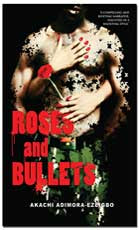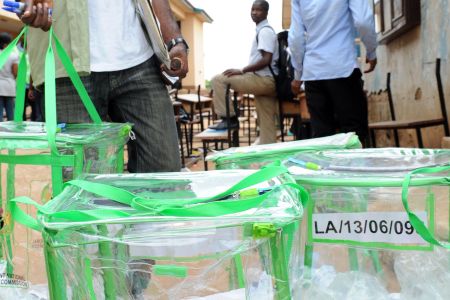As citizen’s reports came in via social media after Nigeria’s parliamentary election, a mass euphoria resounded across cyberspace, carried by tweets, facebook posts, blogs and the myriad Nigerian internet sites, clearly buttressing earlier predictions that social media will play a major role in the April elections.
People who are not familiar with the Nigerian situation must have wondered at that much hoopla on account of a parliamentary election results, but the excitement is not misplaced. The celebration was not purely on account of an assumed widespread defeat of the ruling party, the Peoples Democratic Party (PDP),but was hinged on the belief that votes, for the first time in a generation’s lifetime was allowed to count, and the hope that years of underdevelopment; high unemployment rate; decayed infrastructure and a general feeling of hopelessness in an otherwise endowed nation, may be at an end.
The celebrations were also an indictment of an under-performing ruling class, who many held responsible for the status quo and who, they feel, had not used 12 years of political dominance to address the rot in the system.
The spread of the celebrations in social media, not just cutting across social status, gender, age and tribe, shows that the longing for change is a common denominator in the country, and that this change is a very welcomed.
However, as time went on to show, the celebrations, largely on account of presumed PDP losses, started too soon. By the evening of Sunday April 10, a day after the election, the euphoria began to fade as the Independent National Electoral Commission (INEC) released the official results, which showed that the citizen’s reports were not as accurate as many had hoped they would be.
While the citizen’s report remained largely accurate in the south west, they were more farfetched in the North, South South and South East, especially early reports that had the senate President David Mark losing to Lawrence Onoja. In addition, the initial reports that the PDP no longer dominates in the parliament turned out to be not so true after all. The PDP did lose much more than it has ever done in the election, but managed to maintain its dominance of the South South and South East, while posting a very strong showing in the North East and Middle Belt.
Back to the old days
The election results from the South West did not come as a surprise to many keen watchers of the Nigerian political terrain. The zone is not just the current home base of the clearly formidable Action Congress of Nigeria (ACN) but has always been known to lean towards political entities on which it could exert some level of control, especially if that entity is progressive minded. The zone also appeared for some time now, to be longing for the days of Alliance for Democracy (AD), which until the 2003 elections controlled the zone.
However, much credit should be given to youths for the major role they played in helping ACN carry much of the South West in the last election. While the desire of the various youth led groups, most based in Lagos, is primarily to ensure the April election is free and fair, the hype they created is responsible for the extra awareness that prompted many elites and ordinary Nigerians who have never voted before to turn up and vote.
It would also suffice to add here that the South West is the bastion of the traditional media and new media - wielded by millions of passionate and youthful advocates for good governance - as such; incidences of rigging and voter coercion were reduced to the minimal.
Clinging to the old ways
The South East, which have been suffering from culturally entrenched migrations for decades, does not have the luxury of a vibrant youth movement and media presence consist largely of government owned TV stations and moribund newspapers that are more akin to newsletters. As such, the new media influence that played a large role in the South West situation was largely lacking.
Also, a different political structure exists in the south East, and does too in the South South. Perhaps that is why the results of the parliamentary election did not stray very far from the norm in both zones, as did the usual incidents of ballot snatching, before and during the elections.
Presently, from INEC records, states in the zones mentioned; Imo, Delta and Bayelsa, had the highest incident of ballot snatching during last Saturday’s elections.
An intriguing North
While the South West seem to have gone back to the old ways and the South East and South South sticking to their known devils, the North appear to be evolving in a different direction. Perhaps the situation in the North, where no clear political Direction that would have made predictions on the presidential election easier currently exists, is occasioned by the fact that three of the four most prominent presidential aspirants are from the zone. This zone is usually known to collectively back a consensus candidate during presidential elections in the past, not having one in this dispensation may be a sign of a willingness to depart from the part and enter a new era. However, some see this lack of traditional collective will as a blessing in disguise, if not for them, them for the ruling party, which stands to benefit from a divided vote – something it has already done, judging from last Saturday’s results.
Reason enough to celebrate
Though the CPC made very good inroads into areas that PDP used to control, the PDP still came out of the race as overall winner, with more seats in both houses than all the other parties combined. The PDP’s overall count, does not however give it the type of clear majority it used to enjoy, as a combined force of the other parties will dampen its influence on both houses - that is still worth celebrating.
The current standing, as it applies to much of the South West, North West and North East, shows an entrenchment of democratic ideals that Nigerians have prayed for for years, one that allows for people's vote to count. In the South East and South South, one cannot honestly say this laudable change holds, and this is not because of the wins of the ruling party, but because of the situation on the ground and this is the horror that exists.
If at this moment, when the South East clearly lacks a political leader with national reckon, South Eastern politics is still bedevilled by intrigues like the one between ACN’s Senatorial candidate Chris Ngige and APGA’s Dora Akunyili, then we clearly have much more to do before the celebration really begins.
If in the South South, the politics that holds is like the one whose passing Nigerian celebrated after the parliamentary polls, then we not only celebrated too early, but are not looking at the bigger picture, which should capture the emancipation of every inch of Nigeria.
But then, there are clear cut reasons to celebrate and anyone who placed thumb on paper with a clear conscience on Saturday should celebrate. The walls are crumbling; the people of Nigeria have proven that they are ready to for the present realities of this world. Votes did count, even if not everywhere, but they counted in a greater spread than they have in 12 years, and that is worth hearty “congratulobias”.
Gradually, we are taking our affairs into our own hands and will, in time, prevail, even in those areas that are still lagging behind, especially if we do not forget them.
No, when everything is taken into consideration, we did not celebrate too early.
N/B
this piece was penned right after the parliamentary elections and though unpublished until now, till packs some truth.







